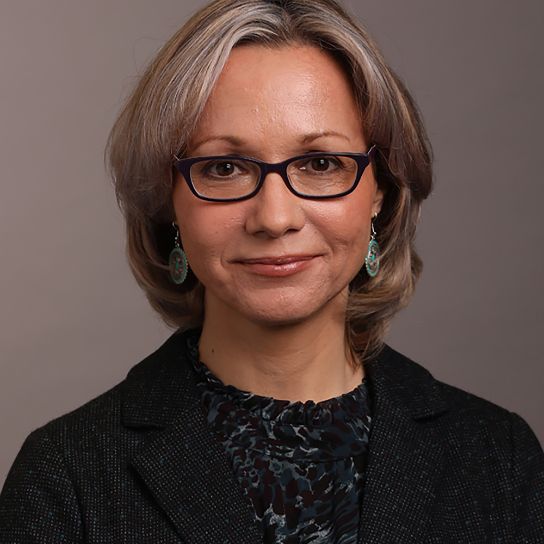On 31 July 2011 Barack Obama enacted a new Executive Order 'Authorising Additional Sactions with Respect to Iran', which has immediate effect. The US Department of the Treasury also announced yesterday the imposition of sanctions under the Comprehensive Iran Sanctions, Accountability, and Divestment Act of 2010 ("CISADA"), against two non-US financial institutions (one Iraqi, one Chinese) for knowingly facilitating significant transactions or providing significant financial services for US-designated Iranian banks.
The new Executive Order
The Executive Order:
1. Authorises the Secretary of the Treasury (in consultation with the Secretary of State) to impose sanctions on foreign (ie. non-US) financial institutions which have "knowingly conducted or facilitated" any "signficant financial transaction" (a) with the National Iranian Oil Company ("NIOC") or Naftiran Intertrade Company ("NICO") (including the subsidiaries of those companies), (b) for the purchase or acquisition of petroleum or petroleum products from Iran, or (c) for the purchase or acquisition of petrochemical products from Iran. Certain limited exemptions apply, and there are carve outs relating to cases where the President has granted waivers under the National Defence Authorisation Act ("NDAA") to the effect that particular jurisdictions have signficantly reduced their volume of crude oil purchases from Iran; or where the President has not determined that there is a sufficient supply of petroleum/petroleum products from non-Iranian sources.
The accompanying FAQs clarify that these provisions have "the aim of deterring Iran or any other country or institution from establishing workaround payment mechanisms for the purchase of Iranian oil to circumvent the NDAA oil sanctions. The existing exception rules under the NDAA apply to these new sanctions. Thus, countries that are determined by the Secretary of State to have significantly reduced their purchases of Iranian crude oil will be excepted from this new measure as well".
The sanctions which can be imposed comprise prohibiting, or attaching conditions to, the non-US institution's holding of a US correspondent account or payable-through account. In other words, foreign financial institutions that (significantly) facilitate trade in Iranian oil may have their access to the US financial sector significantly impeded;
2. Authorises the Secretary of State (in consultation with others) to impose sanctions on any person (including non-US persons) who (a) knowingly engage in significant transactions for the purchase or acquisition of petroleum, petroleum products or petrochemical products from Iran, or (b) own or controls, or is owned or controlled by, or under common ownership with, a person engaged in activities within (a) above, and had knowledge of those activities. As such, non-US persons other than financial institutions may now be subject to sanctions for "significant" faciltiation of trade in Iranian petroleum/petrochemical products. Further, other group companies or parent entities may be sanctioned in this way, even when they did not undertake the relevant conduct.
The sanctions that may be imposed under this head include: denial of Export-Import Bank financing; refusal of licences/permissions from US government departments; (for financial institutions) denial of authorisation to act as a primary dealer in US debt instruments or as a repository of US government funds; refusal of US governemnt agencies to procure goods or services from the sanctioned person; prohibiting US financial institutions to make loans or credit in excess of $10m available to the sanctioned person; prohibiting US foreign exchage transactions; prohibiting payments by that person through US financial institutions; blocking the sanctioned person's property in the US or in possession of US persons; or restricting import of goods from the person. Clearly, some or all of these measures could have a profound business impact on the sanctioned person, depending on the nature and extent of its US nexus (and that of other members of its corproate group);
3. Authorises the Secretary of the Treasury (in consultation with the Secretary of State) to impose sanctions on a person (including a non-US person) who has "materially asssisted, sponsored, or provided financial, material or technological support for, or goods or services in support of" NIOC, NICO, or the Central Bank of Iran, or the purchase or acquisition of US bank notes or precious metals by the Government of Iran. Such persons are liable to have their assets blocked if those assets come into the US or the possession of a US person.
For those trading with Iran, the FAQs suggest that: "These new measures further strengthen the existing comprehensive Iran sanctions framework by deterring work-around financial transactions involving NIOC or NICO that were not being captured under the sanctions previously implemented against the CBI. Iranian trade partners can continue to buy petroleum and petroleum products from Iran without risking sanctions under this E.O. if they have received a significant reduction exception under the NDAA. However, in jurisdictions that do not have a significant reduction exception, the purchase of petroleum or petroleum products and significant dealings with NIOC or NICO may be subject to sanctions under this E.O".
Transactions which evade, avoid, have the purhcase of evading or avoidaing, cause a violation of, or attempt or conspire to violate any of these prohibitions are also prohibited.
Enforcement action
OFAC has also taken taken enforcment action under CISADA against the Bank of Kunlun in China and Elaf Islamic Bank in Iraq, on the basis that they provided financial services to US-designated Iranian banks. CISADA permits the US to sanction foreign financial institutions that "knowingly" facilitate - directly or indirectly - significant transactions on behalf of designated Iranian banks. OFAC defines “knowingly” in this context as meaning that the financial institution knew or should have known of the conduct, circumstance, or result.
The sanctions effectively bar those banks from directly accessing the U.S. financial system; US financial institutions may not open correspondent or payable-through accounts for the banks the US and any financial institutions that currently hold such accounts must close them within 10 days.
Interestingly, the FAQs note that "[s]ince CISADA was signed into law in July 2010, Treasury has engaged with over 120 financial institutions and bank regulators in more than 60 countries all over the world to brief them on the financial provisions of CISADA, and, in cases where we had specific concerns, has shared information about those concerns. This global engagement campaign has proven highly successful, as we have seen the overwhelming majority of financial institutions with which we have engaged change their business practices – even close any correspondent accounts with U.S. designated Iranian banks – to ensure that their access to the U.S. financial system is not put at risk. Today’s action against Elaf Islamic Bank and Bank of Kunlun is in response to both banks’ ongoing relationships with U.S.-designated Iranian banks".
Elaf is said to have facilitated tens of millions of USD transactions with a US designated Iranian bank over the past year, and Bank of Kunlun to have "provided hundreds of millions of dollars’ worth of services to US designated Iranian banks. These financial services include maintaining accounts, transferring payments, and serving as the paying bank for letters of credit opened by US designated Iranian banks".
The sanctions imposed on the banks do not require US financial institutions to freeze or block their assets or reject transactions involving them; although heightened due diligence is said to be "expected" in dealings with the banks.
Key contacts
Disclaimer
The articles published on this website, current at the dates of publication set out above, are for reference purposes only. They do not constitute legal advice and should not be relied upon as such. Specific legal advice about your specific circumstances should always be sought separately before taking any action.














